Artificial Intelligence ( AI )
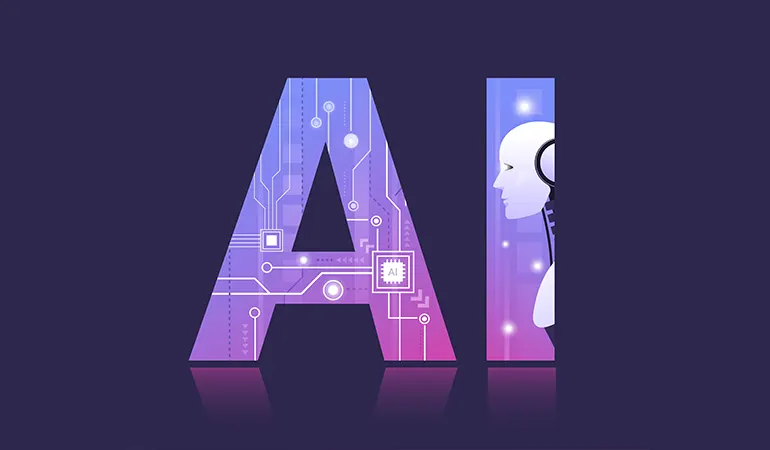
Published on December 2, 2023 by dairacademy@web
The simulation of human intelligence via software-coded heuristics is as artificial intelligence (AI). These days, this code can be found in embedded firmware, consumer apps, cloud-based enterprise systems, and even embedded software.
2022 saw the general public becoming familiar with AI thanks to the utilization of Generative Pre-Training Transformers in many applications. The most often used program is ChatGPT from OpenAI. The majority of customers related ChatGPT with artificial intelligence because of its pervasive attraction. That still only makes up a tiny percentage of the applications of AI technology that exist today.
The capacity for reasoning and making decisions that maximize the likelihood of accomplishing a given objective is the ideal quality of artificial intelligence. Machine learning (ML), a subtype of artificial intelligence, is the idea that computer programs can automatically learn from and adapt to new data without help from humans. This automatic learning is made possible by deep learning techniques, which absorb vast volumes of unstructured data, including text, photos, and video.
What is Artificial Intelligence (AI)?
Most people typically associate artificial intelligence with robots when they hear the term. This is because high-profile books and movies tell tales of human-like robots that bring chaos to Earth. However, nothing could be more false.
The foundation of artificial intelligence is the idea that human intelligence can be described in a way that makes it easy for a machine to emulate and perform jobs of any complexity. One of artificial intelligence’s objectives is to simulate human thought processes.
When it comes to concretely defining processes like learning, reasoning, and perception, researchers and developers in the field are moving at an unexpectedly fast pace. Others think that in the not-too-distant future, inventors will be able to create machines that are more intelligent than humans in any given field. Others, however, are unconvinced since value judgments based on human experience permeate all cognitive processes.
The old standards used to characterize artificial intelligence get out of date as technology develops. For instance, computers that perform simple math operations or recognize text using optical character recognition are no longer regarded as embodying artificial intelligence because these tasks are now considered standard computer capabilities.
AI is constantly developing for the benefit of numerous sectors. A multidisciplinary method based on computer science, psychology, linguistics, mathematics, and other fields is used to wire machines.
Simple algorithms are utilized in simple applications, and more complicated algorithms help frame powerful artificial intelligence. Algorithms are often highly fundamental to the structure of artificial intelligence.
Applications of Artificial Intelligence
Artificial intelligence has countless applications. There are numerous industries and sectors in which the technology can be used. In the healthcare sector, artificial intelligence (AI) is being tested and used to identify treatments, recommend medication dosages, and support operating room procedures.
Artificially intelligent machines also include chess-playing computers and self-driving automobiles. Since every move these machines make will affect the outcome, they all need to consider the ramifications of their choices. Winning a game of chess is the outcome. For self-driving cars to act in a way that avoids a collision, the computer system must take into account all external data and compute it.
Artificial intelligence finds use in the financial sector as well. Here, it is employed to identify and report suspicious activity in the banking and finance domain, including large account deposits and unusual debit card usage, which supports a bank’s fraud department. AI applications are also being used to simplify and expedite trading. This is accomplished by simplifying the estimation of securities’ supply, demand, and prices.
Why is Artificial Intelligence Important?
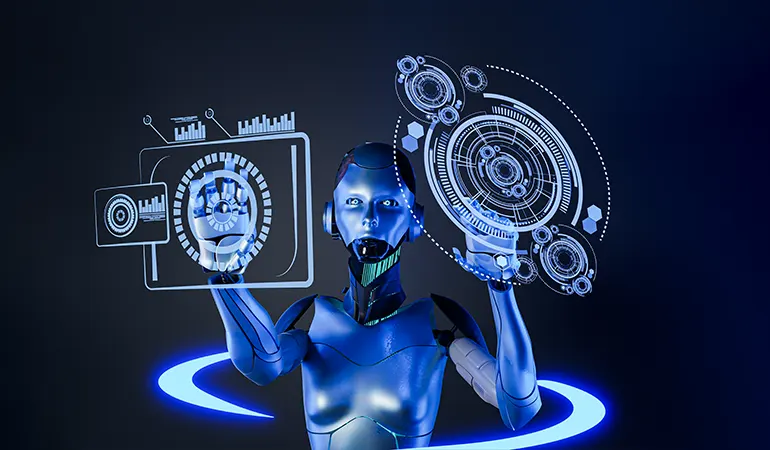
Because AI can alter the way we work, play, and live, it is important. It has been successfully applied in business to automate human labor-intensive processes like fraud detection, lead generation, quality control, and customer service. AI is far more capable than humans in several areas. AI tools frequently finish jobs quickly and with comparatively few errors, especially when it comes to repetitive, detail-oriented tasks like analyzing a large number of legal documents to ensure relevant fields are filled in properly. AI can provide businesses with previously unknown insights into their operations due to the vast amounts of data it can handle. The rapidly growing number of generative AI tools will be crucial in a variety of industries, including education and marketing to product design.
What are the Advantages and Disadvantages of Artificial Intelligence?
Deep learning and artificial neural networks Because AI can process large amounts of data much faster and make predictions more accurately than humans, AI technologies are developing quickly.
A human researcher would be overwhelmed by the daily volume of data generated, but AI applications that leverage machine learning can swiftly transform that data into useful knowledge. As of right now, one of AI’s main drawbacks is the high cost of processing the massive volumes of data needed for AI programming. Organizations need to be aware of AI’s potential to inadvertently or purposely create biased and discriminatory systems as these techniques are incorporated into more products and services.
Advantages of Artificial Intelligence (AI)
Some advantages of AI.
- Good at detail-oriented careers. AI has proven to be just as good in detail-oriented careers, but it is not better than doctors because of diseases diagnosing certain cancers, including breast cancer and melanoma treatment.
- Lowered time for data-heavy tasks. AI reduces the time in data-heavy industries, like banking & securities, pharma, and insurance, etc. And it takes to explore big data collections.
- It saves labor and improves productivity. At the time of the pandemic use of warehouse, automation has expanded and is expected to extend with the integration of AI and machine learning.
- Provides consistent results. The best AI translation tools have high levels of consistency and even with the help of small businesses can get customers in their native language.
- Can enhance customer satisfaction through personalization. AI enhances customer satisfaction through personalized content, messaging, ads, recommendations, and websites for individual customers.
- AI-powered virtual agents are consistently available. AI programs do not require to take breaks, they provide 24/7 service.
Disadvantages of AI
Some Disadvantages of AI.
- It is very expensive.
- AI needs extreme technical expertise.
- AI has a restricted supply of eligible workers to make AI tools.
- It reflects the preferences of its training data, at scale.
- It cannot generalize from one task to another.
- It stops human jobs and also increases unemployment rates.
Weak AI and Strong AI
Weak artificial intelligence is akin to a system built to do a single task. Video games, like the chess example above, and personal assistants, like Apple’s Siri and Amazon’s Alexa, are examples of weak AI systems. When you ask a question, the assistant responds on your behalf.
Strong artificial intelligence can perform tasks that are thought to be human-like. These are typically more intricate and sophisticated systems. They are designed to deal with scenarios where they might need to solve problems on their own without assistance from a human. These kinds of systems are used in operating rooms in hospitals and applications such as self-driving cars.
Types of Artificial Intelligence
1. Purely Reactive
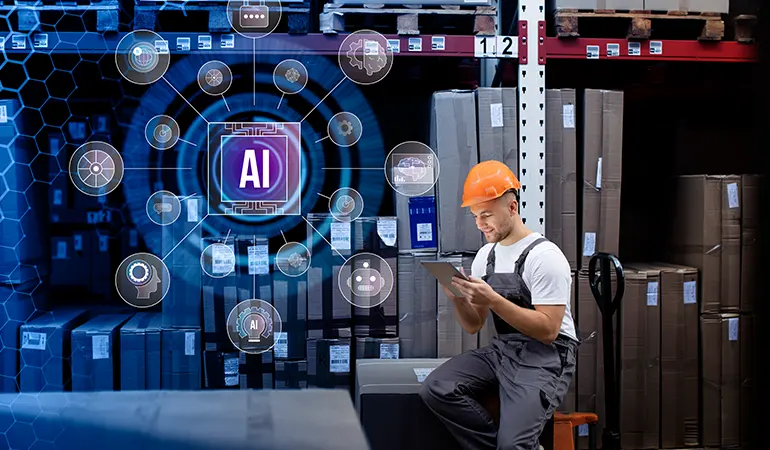
AI machines do not have any memory or data to perform with, specializing in only one field of profession. For example, in the game of chess, the AI machine observes the moves and provides the best possible decision to succeed.
2. Limited Memory
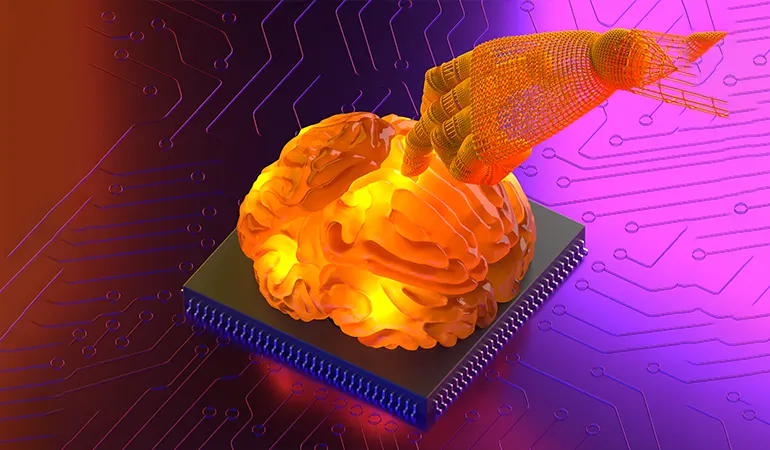
AI manages previous data and continues adding it to their memory. It has enough memory or experience to make the right decisions, but memory is the tiniest. For example, an AI machine can recommend a restaurant based on the site data that has been gathered.
3. Theory of Sense
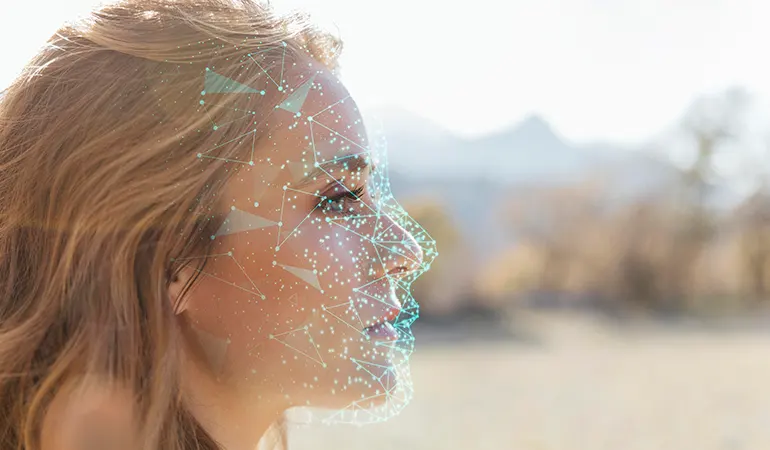
This type of AI can understand ideas and feelings, and interact socially.
4. Self-Aware
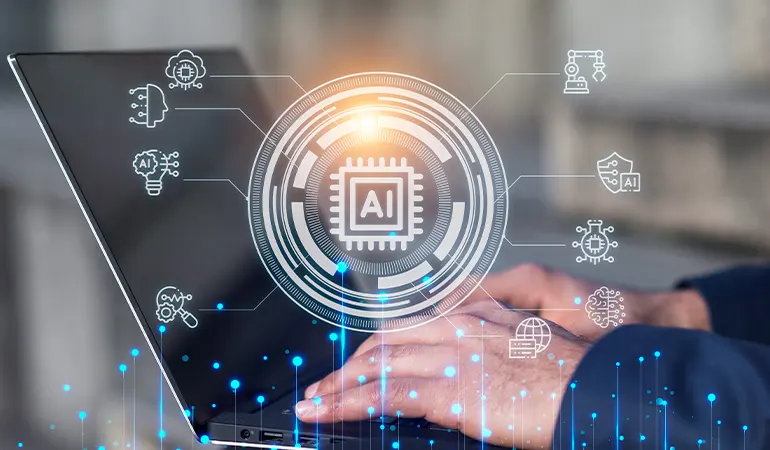
AI is a Self-aware machine for the future generation with new technologies that will be intelligent, sentient, and conscious.
How Is AI Used Today?
These days, AI is widely applied in many different contexts and to differing degrees of complexity. Popular AI applications include recommendation algorithms that make suggestions about what you might like to do next and chatbots that show up on websites or as smart speakers (like Alexa or Siri). Artificial Intelligence is employed in weather and financial forecasting, production process optimization, and reduction of redundant cognitive labor (e.g., tax accounting or editing). AI is also utilized for language processing, gaming, driving autonomous cars, and other tasks.
In late 2022, OpenAI launched its ChatGPT tool. In 2023, it became extremely popular, adding millions of new users every month. Although ChatGPT is regarded as a Weak AI, it’s not strictly reactive and can respond creatively to a wide variety of topics.
Artificial Intelligence Examples
Artificial intelligence technology brings many forms, from chatbots to navigation apps and wearable fitness trackers. The below examples show the scope of potential AI applications.
ChatGPT

ChatGPT is an artificial intelligence chatbot capable of producing written content in formats from essays to code and answers to simple queries. It was launched in November 2022 by OpenAI, ChatGP is a large language model that allows it to emulate human writing. The ChatGPT also evolved as a mobile app for iOS devices in May 2023 and Android devices in July 2023.
Google Maps
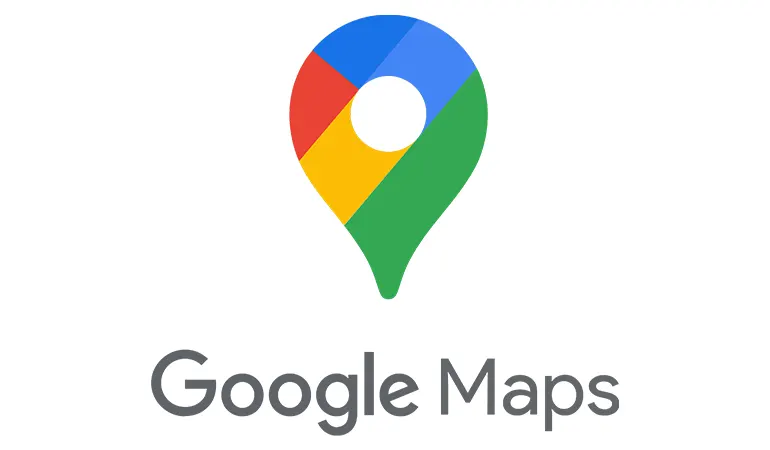
Google Maps is used for location from smartphones and user-reported data on construction and car accidents, to observe the ebb and flow of traffic and consider the fastest route will be.
Smart Assistants

Personal AI aids such as Siri, Alexa, and Cortana use natural language processing, or NLP, to obtain instructions from users to set reminders, explore for online information, and keep the lights in people’s houses.
Snapchat Filters

Snapchat filters utilize ML algorithms to differentiate between an image’s subject and the background, track facial moves, and modify the image on the screen based on what the user is doing.
Self-Driving Cars

Self-driving cars use deep neural networks to catch objects around them, decide their distance from other cars, recognize traffic signals, and much more.
Wearables

The wearable sensors and gadgets used in the healthcare industriousness and involve deep understanding to assess the health condition of the patient like their blood sugar levels, blood pressure, and heart rate.
MuZero

MuZero, a computer program developed by DeepMind, is a promising frontrunner to achieve artificial general intelligence. It manages master games that have not been trained to play, including chess and a suite of Atari games, via brute force, playing games millions of times.




Comments